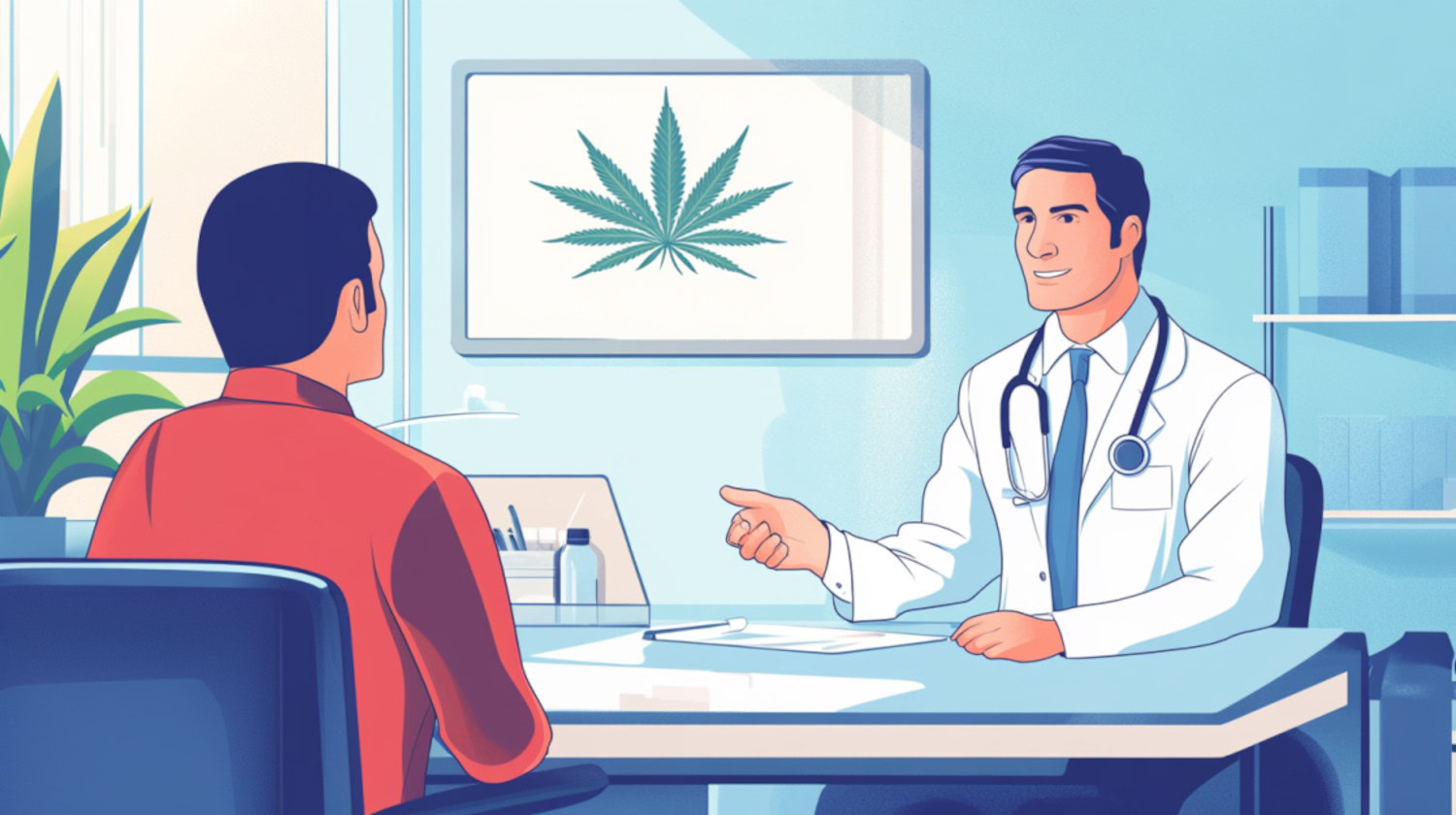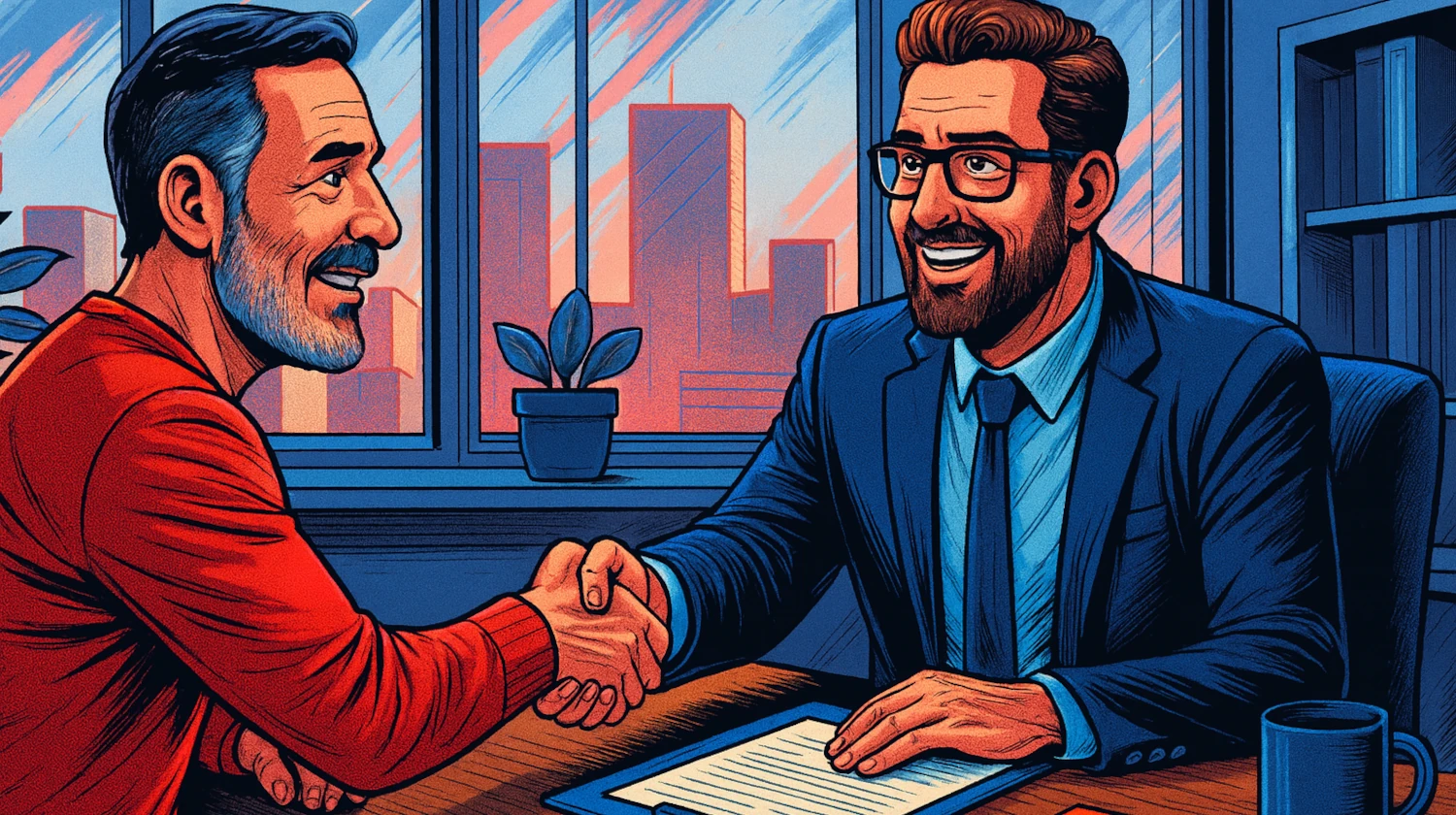In This Article
- The Process to Get a Medical Card Can Vary By State
- You Don’t Have to Get High
- High Potency Doesn’t Guarantee High Quality
- Medical Dispensaries May Have Greater Product Selection
- Different Sources Make Wildly Different Claims About the Benefits of Medical Cannabis
- Med Card Costs Differ By State
- Insurance Doesn’t Cover Medical Cannabis
- Legal Protections from a Medical Card Can Vary
- Online Evaluations Are Available in Many States
- "Is a card worth it if I already use cannabis?"
- "Am I guaranteed a card?"
- "Will I fail a drug test?"
Key Takeaways
- Patients should know the benefits and side effects of the medicine they consume, cannabis or otherwise.
- Knowing how to get a med card and what privileges do (or do not) come with it helps patients stay informed and educated.
- Effects of cannabis can vary significantly depending on the physical, mental, and geographical state of the consumer.
The modern medical cannabis movement first became legal in California in 1996. Nearly 30 years later, the adult-use market vastly outsizes the medical space. This has led to misconceptions about the cost, benefits, and applications of medical cannabis that often can be confusing to new patients.
There are several key points many patients wish they knew before getting their card.
The Process to Get a Medical Card Can Vary By State
States currently set their own qualifying conditions and processes for medical cannabis. While specifics can vary, the process to get a medical card or prescription is generally the same across the country:
- Get a doctor’s recommendation
- Show you have a state-approved condition
- Pay any necessary fees to the state program
Some states require registering with a state agency before finding a doctor, while others require some patients to obtain multiple physician recommendations to qualify.
You Don’t Have to Get High

Many patients assume medical cannabis means they'll feel intoxicated, or 'high,' but there are many products that are non-intoxicating.
In reality, medical cannabis includes a wide range of products, including various cannabinoid doses and ratios, allowing for a customizable experience.
For example, some patients may turn to THC for its uplifting, relaxing effects. Others may choose high CBD, low THC products or a microdosed edible to get their desired benefits with little to no high.
High Potency Doesn’t Guarantee High Quality
Many consumers think that higher THC percentages means a product will deliver better effects. In reality, potency is just one indicator of the overall experience. And numerous other elements and compounds can shape plant and product quality and user experience.
- Terpenes
- Flavorants
- Minor cannabinoids
- Cultivation methods
- Drying and curing methods
Your level of stress, the environment you're in when consuming cannabis, hydration, and other medications you may be taking can also affect your experience. If high potency is failing to deliver your desired effects, consider consulting with a medical cannabis practitioner or a cannabis pharmacist for help finding the right products and dosage for your specific goals.
Medical Dispensaries May Have Greater Product Selection
Both medical and recreational markets often share the same plant genetics and quality standards.
The real market differences are in product selection, with medical dispensaries typically carrying a wider variety of products, including higher dosage and more CBD options. Medical patients are also often allotted a higher purchasing limit than recreational consumers.
Brands may offer different dose versions of their product to serve the medical or recreational shelves. And depending on the state, some products may only be available to either market.
Different Sources Make Wildly Different Claims About the Benefits of Medical Cannabis
Some consumers may assert that cannabis can cure or treat any ailment. Other sources may claim that any medical use of cannabis is an excuse to "get high." Both claims are incorrect.
While the plant has demonstrated significant potential to address various conditions and symptoms, that doesn't mean it is right for every consumer or condition. Certain conditions do not improve with cannabis, and some individuals may not enjoy or wish to consume it. Likewise, claims that there are no medical benefits of cannabis overlook hundreds of studies and thousands of anecdotal reports demonstrating otherwise.
Med Card Costs Differ By State

Medical cannabis card registration prices vary by state. One state may charge $50, and a neighboring state may charge $200 or more. Some states offer discounts or waive fees for veterans, seniors, and other applicants. Additionally, states stipulate their own renewal processes, meaning costs and timelines for renewing differ.
While registration costs can seem steep in certain states, lower tax rates, higher purchase limits and dosage, patient-only discounts, and an array of other benefits can quickly offset the upfront costs for many patients.
Insurance Doesn’t Cover Medical Cannabis

Many patients would love to see their insurance providers cover the cost of medical cannabis. However, until cannabis is available as an FDA-approved option, insurance providers won’t typically cover the costs.
Currently, patients must pay for all medical cannabis costs, including:
- Out-of-pocket for doctor visits
- Application costs
- Registration costs
- Medical cannabis products
Legal Protections from a Medical Card Can Vary
A medical cannabis card provides a great degree of legal protections and expanded product access. But these benefits can vary from state to state, and patients should be aware of what protections and product choices are available near them.
- Employment Privileges: Unless specified by state law, medical cannabis consumers are not guaranteed additional employment protections and privileges. Federal employers continue to ban cannabis use as well, even if located in a legalized state.
- Gun Rights: Several legal challenges in recent years have challenged federal rules prohibiting medical cannabis cardholders from purchasing firearms.
- Parental and Housing Rights: While a medical cannabis card adds legitimacy, some individuals who rely on public housing assistance or are involved in custody matters have still reported losing these rights as a result of legally using medical cannabis.
- Reciprocity: Not every state honors out-of-state medical cards, also known as reciprocity. Some states require additional steps, like obtaining a temporary in-state card, to gain legal access.
- Home Grow: Not all states with medical cannabis programs allow med card holders to grow their own plants.
Online Evaluations Are Available in Many States
Many states allow patients to qualify from the comfort of their homes. This is known as telemedicine. These rules allow NuggMD to connect patients in 28 states to licensed practitioners in minutes.
"Is a card worth it if I already use cannabis?"
A medical cannabis card can mean lower taxes, higher purchase limits, and product options not always available to recreational users.
One Missouri NuggMD patient shared, “I tried recreational once it became legal in Missouri. Once I realized how well it worked, I applied for my medical card.”
"Am I guaranteed a card?"
No. Qualifying conditions vary by state, and patients must meet physician requirements and pay registration costs, in addition to other state qualifications. Failure to fulfill these steps can result in not receiving a medical card.
"Will I fail a drug test?"
Many employers won’t drug test for cannabis. But that doesn’t mean it's the standard across the board: government jobs and some Fortune 500 companies still screen for cannabis use. While a medical card may offer some protections when using the plant off hours, it won't keep you from testing positive.
The information in this article and any included images or charts are for educational purposes only. This information is neither a substitute for, nor does it replace, professional legal advice or medical advice, diagnosis, or treatment. If you have any concerns or questions about laws, regulations, or your health, you should always consult with an attorney, physician or other licensed professional.




